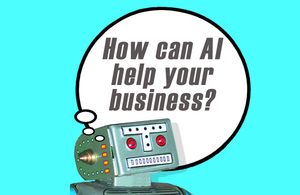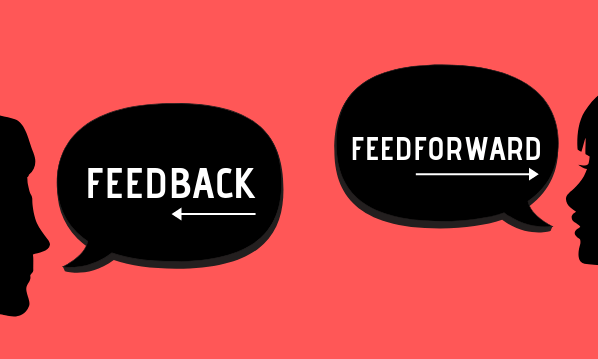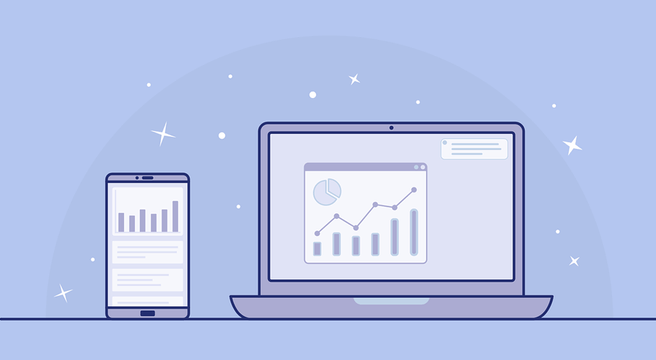 Have you heard of Artificial Intelligence (AI for short)? It may conjure up images of science-fiction movies and robots, but chances are that you’re using AI every day without even realising. The concept of AI isn’t new but many of us still don’t really understand what AI is, or how it even works. Let alone how to implement it to benefit our businesses. If you’re interested in how AI may affect your business read on to explore what AI is, how you can utilise it effectively and how to prepare your small business for the AI revolution.
Have you heard of Artificial Intelligence (AI for short)? It may conjure up images of science-fiction movies and robots, but chances are that you’re using AI every day without even realising. The concept of AI isn’t new but many of us still don’t really understand what AI is, or how it even works. Let alone how to implement it to benefit our businesses. If you’re interested in how AI may affect your business read on to explore what AI is, how you can utilise it effectively and how to prepare your small business for the AI revolution.
What is AI?
Artificial Intelligence (AI), sometimes known as “machine learning,” refers to technology that is programmed to mimic human actions, for example on car assembly lines, where machines can help to speed up a process. AI also includes technology, pieces of code combined with machines and mechanisms, which can be taught to learn and problem solve. AI instinctively always needs a human element, to begin with. Its purpose is to behave in a human-like way, sometimes even learning from mistakes and trying different approaches and emotional responses.
How is AI Already Being Used?
You may be unaware of the artificial intelligence already implemented into your lifestyle and business processes, for example using GPS on your phone to find directions or interacting with online chatbots (like the Yell Messaging virtual assistant Hartley). Already deemed as a General Purpose Technology (GPT), AI is already being used in many different ways including:
Machine Learning
Machine learning involves either a computer analysing data to identify patterns, trends and characteristics. The initial data can be fed into the computer is already labelled. For example those “I am not a robot” security questions where you need to click on all the images containing pictured of boats on a 3 x 3 grid before you can proceed. Artificial intelligence likely created that output after images of boats were fed into the system. These images would have each been labelled ‘boat’ and then the AI learned and identified other similar pictures and made predictions based on the original data.
Autonomous Systems
Autonomous systems include driver-less cars and delivery drones and buggies. Once a destination has been selected, these types of AI can move within a specific environment and safely make its journey by analysing the surrounding environment and adapting as required.
Language and Audio Processing
Speech recognition may be something you are very familiar with as home devices, such as Amazon Echo, Google Home or Apple’s Siri are already widely accessible. The speech processing within these devices allows you to play a specific song or get an answer to a question by merely saying these commands out loud. Not only that but the AI can differentiate between voices and understand different languages and accents. Another form of language processing is the use of chatbots on your website, where the AI behind the scenes understands what a customer has typed into the chatbox and replies with the most appropriate response.
What Do We Mean by the “AI Revolution”?
The implementation of artificial intelligence is being deemed as the AI revolution. Put simply it means how AI is being used within many new technologies in a variety of ways, but mostly to mimic human decision making. AI is being fiercely developed to be integrated into everyday systems including healthcare, farming and aviation. What this means, in terms of small businesses, looks like to be the use of algorithms to identify, analyse and explain processes and even suggest ways to make them more efficient. Evidence suggests that algorithms are becoming increasingly intelligent and can be used to solve a problem, including customer pain points, and to make decisions on next steps.
There has been some backlash about the AI revolution as systems built by humans incur human errors and contain conscious and unconscious bias in the marketplace. Plus some algorithms and systems currently seem a world away from being used effectively by consumers and businesses on a daily basis. But moreover, AI has so far been helpful and does not currently pose a threat to human intelligence.
How Can I Use AI within my Small Business?
To use AI within your small business, you might consider using a chatbot, automated response system or virtual assistant to allow customers to connect with you directly. You may already be using artificial intelligence in terms of analytics such as using a simple tracking code on your website to determine where your customers are located and which web pages are most popular. Business processes can also be automated using AI, such as financial tasks and the buying process from the first customer contact right through to confirmation and shipping.
[bctt tweet=”Explore what AI is, discover how you can utilise it effectively and learn how to prepare your small business for the AI revolution.” username=”yellbusiness”]
As you can see from the examples above, artificial intelligence is already being used across everyday tasks such as using telephones, playing videogames, customer services and shopping. Although it is being implemented in more futuristic technologies such as flight sims and driverless cars. There is much we can do using AI and the possibilities of how it can be evolved and implemented within a business have endless possibilities. Are you already using AI within your business processes? Are you preparing your business for the AI revolution?





